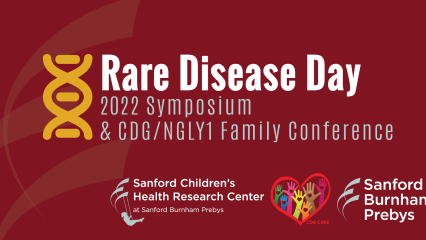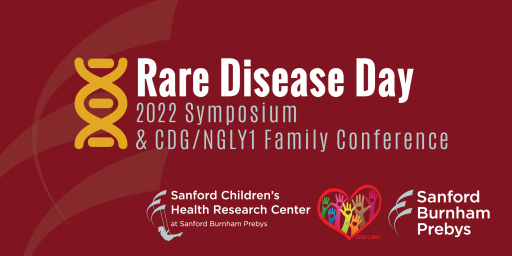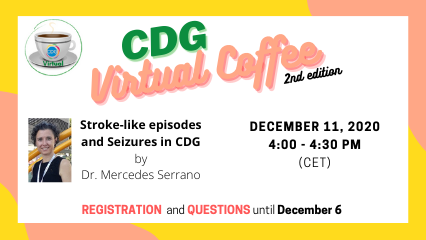Call for research to improve the quality of life of people living with rare diseases
- Read more about Call for research to improve the quality of life of people living with rare diseases

The CDG & Allies calls for research based on the needs of people living with rare diseases and their families, as a way to improve the quality of life of people living with Congenital Disorders of Glycosylation (CDG), a group of rare hereditary disorders. This alert comes as part of Rare Disease Day, which was celebrated on February 28.
"Rare Disease Day is a global movement on Rare Diseases with extreme relevance for people living with these types of conditions. Currently, the vast majority of CDG do not have any therapy available; this research is needed. It is a constant fight for equity, for social inclusion, and for people living with CDG to have the best possible quality of life," says Vanessa Ferreira, sister of a person living with CDG, co-founder and researcher of CDG & Allies.
Today, many organizations of people living with rare diseases carry out a form of collaborative activism, which is called "Collective Hybrid Model (CHM)". The CDG & Allies is a unique and pioneering example in our country of this type of activism. Since 2016, several CDG associations, families and experts have united in the "fight against CDG''. CDG families and the associations that represent them, are "experts by experience" with the power to identify urgent needs regarding research and development of therapies. That is, CDG families are not just restricted to live with a diagnosis, they have an active role when it comes to research and development of therapies to meet their needs as well as from other families and of people living with Rare Diseases", Vanessa adds.
"Parents and family members are abandoned to their fate, living in the incessant search for reliable information about these diseases, about therapies and in the search for answers to their children's needs. They struggle daily with the unattainable - the cure for the disease," says Rosália Félix, mother of a person living with CDG, co-founder of the Portuguese CDG Association.
"Many of the developments that have taken place in the area of CDG are mainly related to the identification and description of new types of the disease and diagnostic methods." adds Paula Videira, co-founder and researcher of CDG & Allies at NOVA School of Science and Technology (FCT NOVA).
"Today, there is still a delay and failure in diagnosis, lack of information about rare diseases in general, lack of awareness from professionals about this group of diseases, lack of availability of quality care, scarcity of social benefits, reduced autonomy and difficulty integrating into the world of work and the social and family environment," concludes Rosália Félix.
CDG are a group of over 170 inherited diseases that affect glycosylation, a process by which all human cells accumulate long-chain of sugars that are attached to proteins or lipids (fats), essential for many biological functions.These diseases are highly disabling, with a high pediatric mortality rate and a significant negative impact on the quality of life of patients and families.
For more informations see: https://worldcdg.org/






